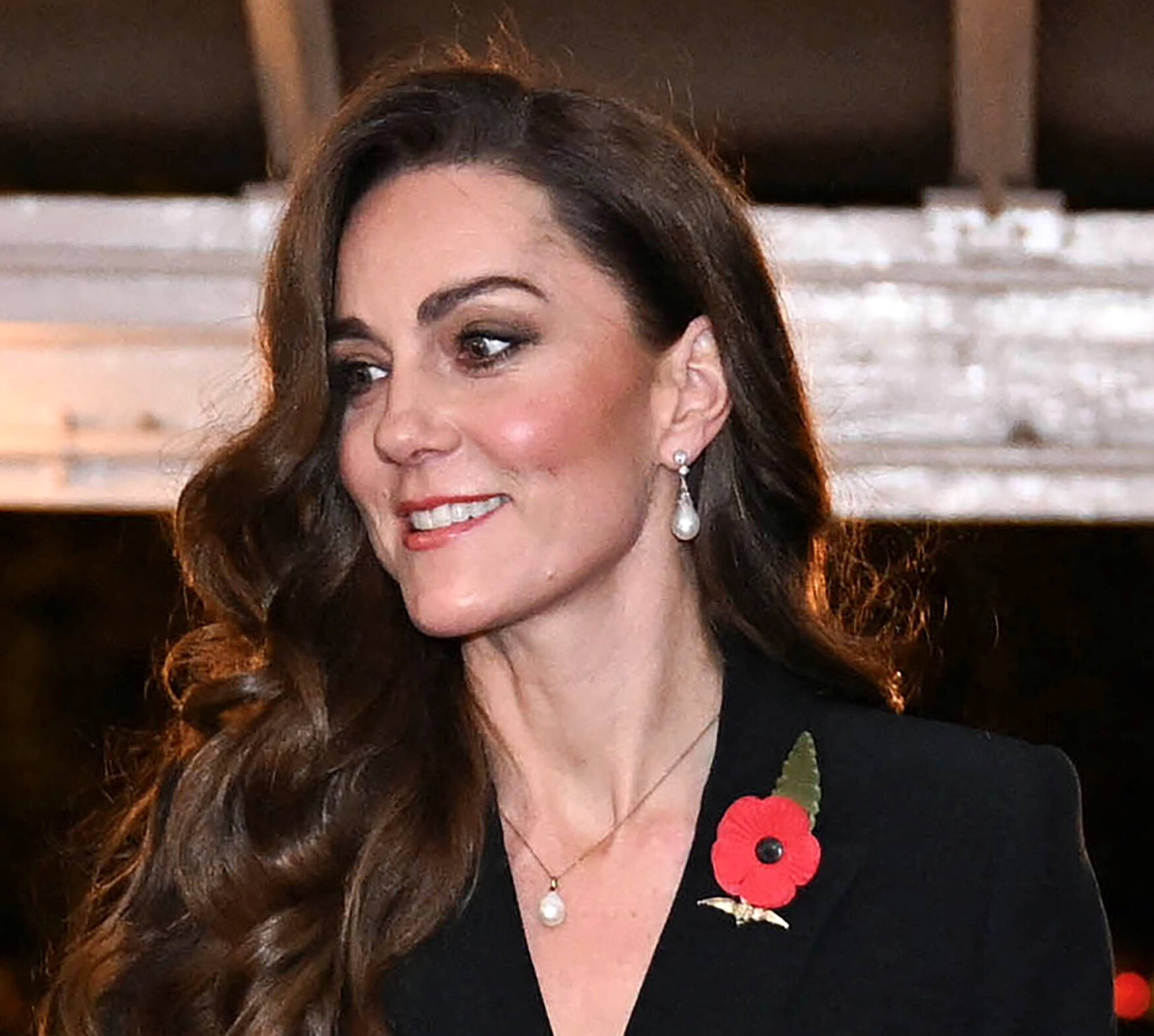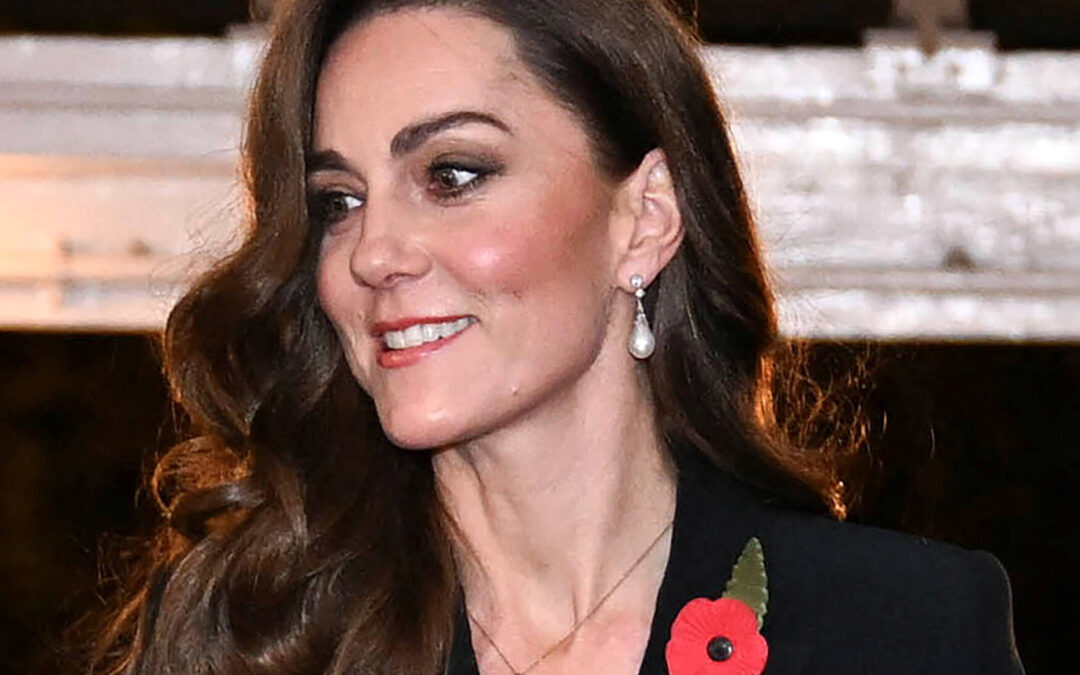From Kate Middleton to Melania Trump, When Did Celebrity Conspiracy Theories Become Mainstream?
When did it become normal for celebrity conspiracy theories to infiltrate the news cycle? The events of 2024 have a lot to answer for.
Words by Nikki Peach

We are living in a world – at least a digital world – where it is not uncommon to find conspiracies pervading the mainstream. Where social media chatter and hard news so often blur into one another, it’s becoming increasingly difficult to distinguish between fact and fiction – at what point do we stop caring and read on anyway?
Perhaps there is something intriguing, possibly even comforting, about freely questioning our surroundings and indulging in our wildest assumptions – especially when it comes to celebrities. If 2024 has taught us anything, though, it’s that it’s a slippery slope. Where and how do we draw the line?
The start of the year was marred with theories about the Princess of Wales’s whereabouts after she hadn’t been seen in public for three months. A step back from royal duties to recover from ‘planned abdominal surgery’ wasn’t a good enough explanation for the internet, and #KateGate quickly snowballed into something unprecedented in its scope.
#WhereIsKate, #KateGate and #KateBodyDouble quickly became viral trends around the world. Her absence dominated headlines as far afield as the Dominican Republic and Pakistan, with rumours encompassing everything from her ‘impending divorce’ from Prince William to a planned stint on The Masked Singer.
Then matters escalated when Kensington Palace shared a photoshopped picture of Kate and her three children on Mother’s Day, which was later given a kill notice by all major press agencies. The following day, the Princess of Wales took to social media to explain the mishap. ‘Like many amateur photographers, I do occasionally experiment with editing. I wanted to express my apologies for any confusion the family photograph we shared yesterday caused.’
What was probably intended to put the fire out ended up fanning the flames. The following week, Kim Kardashian captioned a photo of herself posing in front of her car, ‘On my way to go find Kate’, and was duly roasted.
When William and Kate were spotted shopping together near their home in Windsor a few days later, they were accused of hiring a body double. Speculation reached such frenzied heights that a well-known Kate Middleton lookalike Heidi Agan, told The Mirror, ‘My own social media has gone crazy as people think it is me, but I know it is not. I was at work at the time, so I know that is not me.’
Of course, we know now that Kate was being treated for cancer and undergoing preventative chemotherapy. She delivered the news in a video, perhaps to quash further outlandish theories about her whereabouts, and deployed the same tactics to confirm she had finished treatment.
In hindsight, how did we allow things to get so out of hand? While conspiracy theories about the royal family have always existed, thanks to social media this one became a viral bloodsport. When the truth came out, no one was laughing.
#KateGate snowballed into something unprecedented in its scope
Far from a one off, the #KateGate saga is likely a sign of things to come. After all, the king of fake news himself has just been re-elected as US president and his wife, Melania Trump, was at the centre of the second biggest body double conspiracy theory this year.
Noticeably absent from much of Donald Trump’s campaign, many people literally did not believe Melania was by her husband’s side at the polling station on election day – despite photographic evidence. Journalists were posting on X to say, ‘Look, I’ve never been a Melania truther, but this just… isn’t her?’ and another user wrote, ‘That is fake Melania. Bone structure not even close.’
These posts feed into a long-established conspiracy known as ‘The Melania Trump replacement conspiracy theory’, which started back in 2017 when Trump first became president. It denotes that the ‘real’ Melania is either dead or refuses to attend public events and is often represented by a lookalike. It gained so much traction at one point that Trump denounced the theory as ‘fake news’ himself.
As Kate’s Mother’s Day photo taught us – a picture paints a thousand words on the internet. After Trump won the election, he shared a photo of his ‘First Family’ on social media, where he stood next to his entire family as well as Elon Musk, but Melania was nowhere to be seen.
This gave rise to another bout of theories about Melania’s whereabouts, her alleged ‘post-nup’ marital agreement and her reluctance to return to The White House. This is something that will no doubt intensify next year when Trump returns to office.
The truth is a lot of people indulge in these theories. Relish them in fact. We seem to experience schadenfreude in sharing memes with our friends, contributing our ‘takes’ on social media and reading lengthy Reddit threads posted by people with only numbers and symbols in their usernames.
Consider some of the most popular – albeit wholly unsubstantiated – celebrity conspiracy theories of the past decade. That Khloe Kardashian is OJ Simpson’s biological daughter; Avril Lavigne died in 2003 and was replaced by a body double named Melissa Vandella; the murdered child beauty queen JonBenet Ramsey secretly grew up to become Katy Perry; Katie Holmes was pregnant with a Scientology alien; Taylor Swift and Beyonce both have ties to the Illuminati, in fact Taylor Swift also has ‘an evil twin’ in Japan; and last but not least, Britney Spears is a secret government operative.
It’s like that many of us have heard of at least one of these theories, but they were never fed to us en masse in the way we’ve seen happen this year. Far from being an unavoidable global story, these theories exist in their own little corner of the internet.
Until now, we have rarely all banded around the same theory at the same time. #KateGate and the ‘Melania Replacement Theory’ are examples of what can happen when we do.
‘The reason you had so many people who are not conspiratorial minded participating in [#KateGate] is because we are in a nadir of celebrity gossip and celebrity information,’ offered journalist Anne Helen Peterson on her podcast, Culture Study. ‘There are very few celebrities who feel like global or even national touchstones and so what was happening felt like something to talk about.’
This rings true, but if that’s all it takes for a conspiracy theory about global figure to go viral in this increasingly unhinged digital landscape then we should be wary.
When these theories start to infiltrate the zeitgeist, they quickly shift from niche and often harmless nonsense into something harmful and difficult to control.
Most of us like to believe that we can go down the rabbit hole knowing we will be able to find our way back out. If this year has taught us anything, it’s that this is not necessarily true. While it’s important to question our surroundings, we have a collective responsibility to monitor the extent to which we engage with conspiracy online. Let’s hope the events of 2024 are a cautionary tale.
Photo: IMAGO

